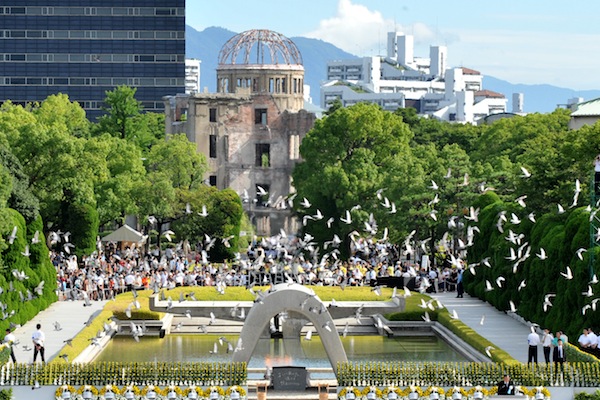It was a perfect spring day in Hiroshima last week. I was there for my 25th wedding anniversary, which may sound odd, but my wife and I both work on Foyle’s War, which is now set in the atomic age, so it seemed appropriate. We strolled together around the A-Bomb Dome, the twisted, iconic ruin that is all that is left of the old city, then entered the Peace Memorial Museum, built in 1955, the year I was born. I found the whole experience incredibly moving: the child’s bike dug out of the ruins, the watch that had stopped at 8.15, the piece of wall that still carries the ‘ghost’ of the man who was sitting against it when the bomb fell. I was rather surprised to come away with the view that we should abandon our nuclear deterrent not because it is too expensive or irrelevant, as I used to believe, but simply because the ownership of such a monstrous weapon diminishes us. How can any civilised country have such darkness at its heart?
My overriding impression of Japan was how very clean it was — the stations spotless, the streets litter-free. The Japanese seem to have come out of their ten years of stagnation in remarkably good shape. I have never seen so many cleaners, sweepers, gardeners and maintenance people. Everywhere there are minor officials in smart uniforms, bowing and smiling. How does the government afford them all? I have to say that I was also smitten by the Japanese toilet, complete with its heated seat and, in some cases, diverting sound effects. Not the most edifying subject for a Spectator diary — let’s just say it replaces paper with a squirt of water and a blast of warm air. I’m amazed these modern miracles have yet to conquer Europe.
Returning to London, I see that someone called Elmo has climbed a building opposite my home, presumably in the middle of the night.








Comments
Join the debate for just £1 a month
Be part of the conversation with other Spectator readers by getting your first three months for £3.
UNLOCK ACCESS Just £1 a monthAlready a subscriber? Log in